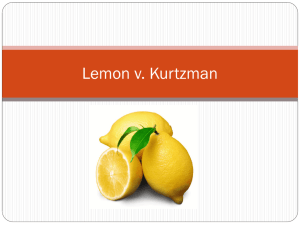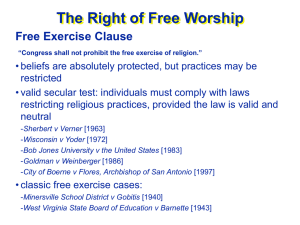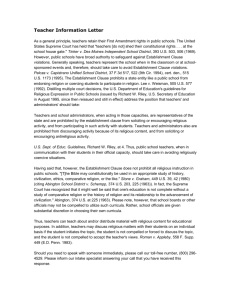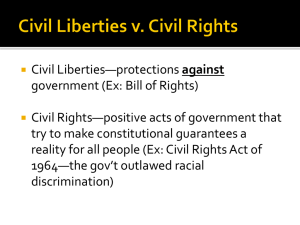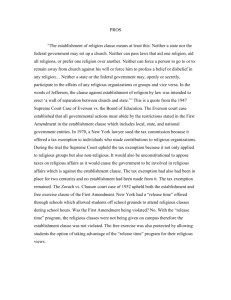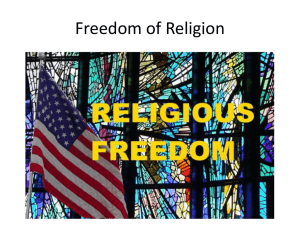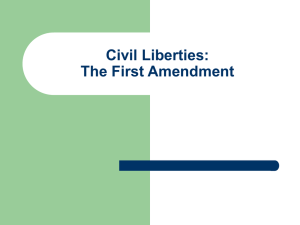April 9, 2003 Re: City potential contribution to “Group X” organization
advertisement
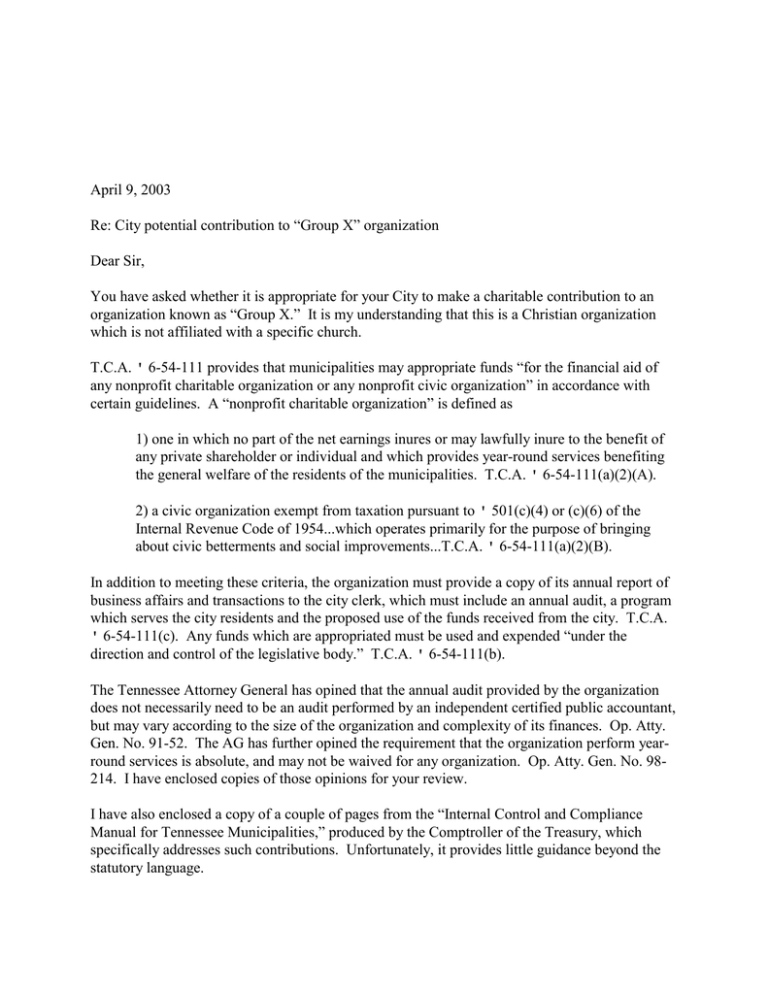
April 9, 2003 Re: City potential contribution to “Group X” organization Dear Sir, You have asked whether it is appropriate for your City to make a charitable contribution to an organization known as “Group X.” It is my understanding that this is a Christian organization which is not affiliated with a specific church. T.C.A. ' 6-54-111 provides that municipalities may appropriate funds “for the financial aid of any nonprofit charitable organization or any nonprofit civic organization” in accordance with certain guidelines. A “nonprofit charitable organization” is defined as 1) one in which no part of the net earnings inures or may lawfully inure to the benefit of any private shareholder or individual and which provides year-round services benefiting the general welfare of the residents of the municipalities. T.C.A. ' 6-54-111(a)(2)(A). 2) a civic organization exempt from taxation pursuant to ' 501(c)(4) or (c)(6) of the Internal Revenue Code of 1954...which operates primarily for the purpose of bringing about civic betterments and social improvements...T.C.A. ' 6-54-111(a)(2)(B). In addition to meeting these criteria, the organization must provide a copy of its annual report of business affairs and transactions to the city clerk, which must include an annual audit, a program which serves the city residents and the proposed use of the funds received from the city. T.C.A. ' 6-54-111(c). Any funds which are appropriated must be used and expended “under the direction and control of the legislative body.” T.C.A. ' 6-54-111(b). The Tennessee Attorney General has opined that the annual audit provided by the organization does not necessarily need to be an audit performed by an independent certified public accountant, but may vary according to the size of the organization and complexity of its finances. Op. Atty. Gen. No. 91-52. The AG has further opined the requirement that the organization perform yearround services is absolute, and may not be waived for any organization. Op. Atty. Gen. No. 98214. I have enclosed copies of those opinions for your review. I have also enclosed a copy of a couple of pages from the “Internal Control and Compliance Manual for Tennessee Municipalities,” produced by the Comptroller of the Treasury, which specifically addresses such contributions. Unfortunately, it provides little guidance beyond the statutory language. In my opinion, a municipality should not make appropriations to organizations which are religious in nature, whether or not the organization is affiliated with a specific church. Such a contribution may violate the Establishment Clause of the First Amendment of the United States Constitution. The Establishment Clause is applicable to state and local governing bodies by operation of the Due Process clause of the Fourteenth Amendment. The Establishment Clause forbids the establishment of a religion by the government, and also forbids “preference among religious sects or denominations.” Wallace v. Jaffree, 472 U.S 38, 106, 105 S.Ct. 2479, 2515, 86 L.Ed.2d 29 (1985). In Lemon v. Kurtzman, 403 U.S. 602, 614, 91 S.Ct. 2105, 2122, 29 L.Ed.2d 745 (1971), the Supreme Court adopted a three part test for examining Establishment Clause cases, stating: 1) the legislature must have adopted the law (resolution, etc.) with a secular purpose; 2) the statute’s principal or primary effect must be one that neither advances nor inhibits religion; and 3) the statute must not result in an excessive entanglement of government with religion. While the City will be acting through a resolution rather than a statute, the same analysis applies. It is my understanding that “Group X” is organized for the purpose of promoting Christianity to young people. As such, any funds donated by the city would be used for that purpose which is clearly in violation of the Establishment Clause. Further, as the city would have an obligation to oversee the expenditure of the funds, there will be an “excessive entanglement” between the government and the functions of this religious organization. If I am wrong and “Group X” is not used as a vehicle for promoting Christianity, and the purpose for which the organization will use the appropriation will be purely charitable or civic service, without the advancement of any religious message, then the contribution may be made within the directions provided in the statute. I hope this information is helpful. Please feel free to contact me should you have any questions or need further information. Thank you for consulting with MTAS. Sincerely, Melissa A. Ashburn Legal Consultant
